Introduction
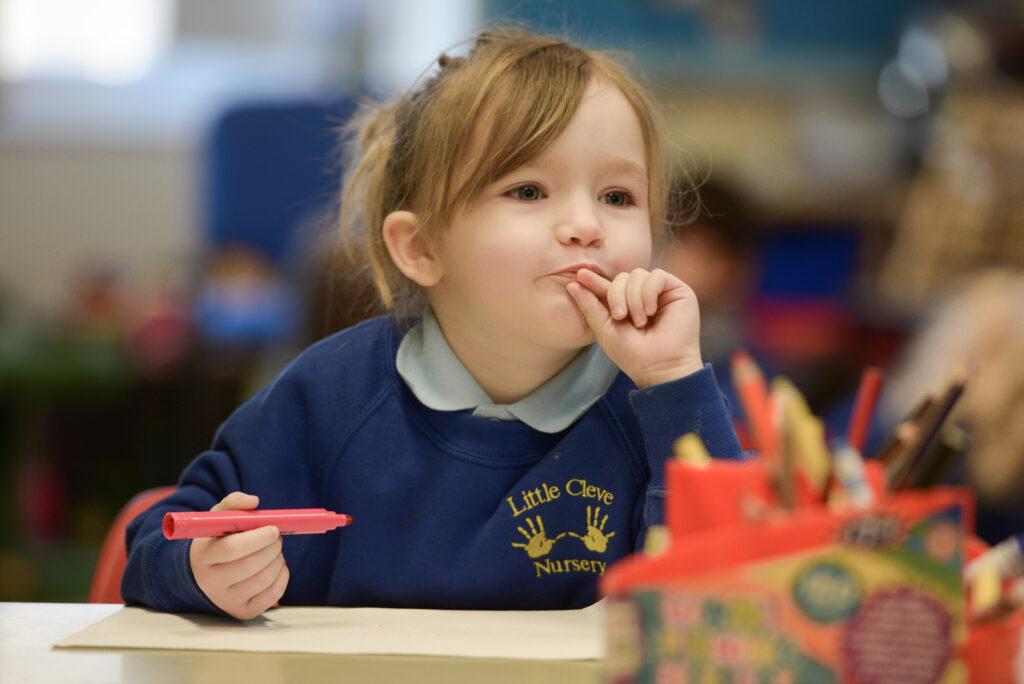
Our Preschool’s safe, nurturing and stimulating environment provides the perfect setting for children to begin their first stages of learning. Through organised play and fun, as well as adult-led activities, the children will cover the seven areas that constitute the Early Learning Goals.
These are:
- Personal, Social and Emotional Development: To develop self-awareness, self-confidence, manage feelings and behaviour and form relationships. As well as healthy choices and self care.
- Physical Development: To develop movement and handling skills.
- Communication & Language: To develop listening, concentration, attention, understanding and speaking skills.
- Language & Literacy: To develop comprehension, reading and writing skills.
- Mathematics: To develop problem solving skills and familiarity with numbers, shapes, measurements and space.
- Expressive Art & Design: To develop creative skills through exploration, imagination, media and materials.
- Understanding the World: To develop an understanding of people, communities, technology and the natural world . As well as the concept of past and present.
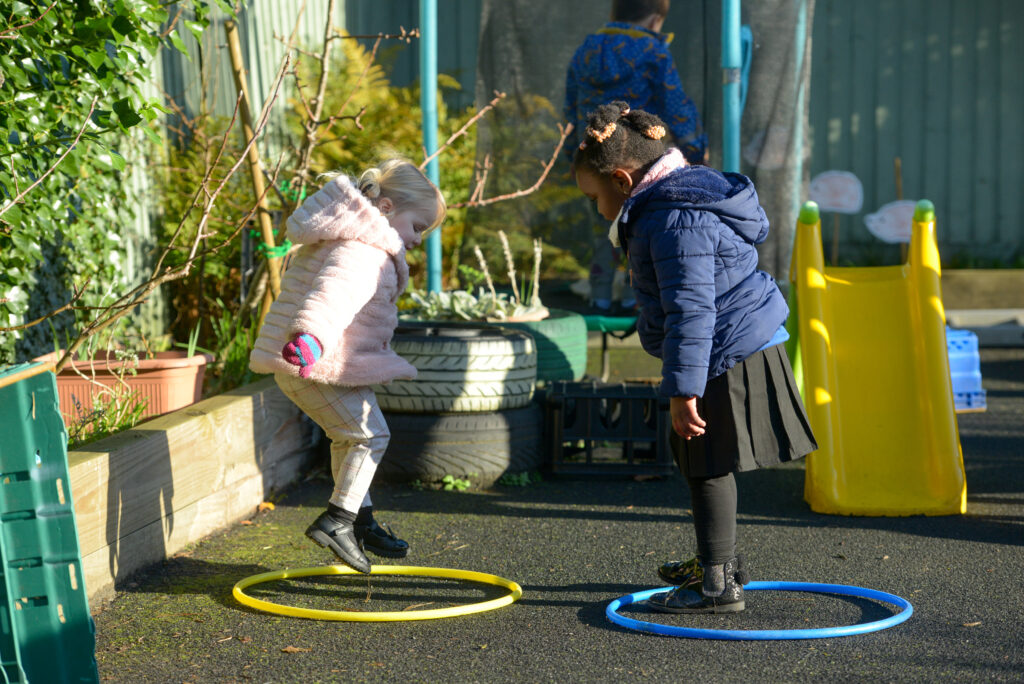
Personal, Social and Emotional Development
Our Preschool’s safe environment helps develop your child personal, social and emotional development by allowing them to build their self-confidence and self-esteem, whilst learning to manage their feelings and form relationships with other children and adults. We recognise and embrace the importance of working in partnership with parents during this process and use ‘Tapestry’ as a means of communication and update.
Developing the children’s sense of independence is achieved in a number of ways in the Preschool. Starting with small steps at first, each child is given their own peg (identifiable with their name and photo) to hang their coat on.
As their confidence and need for independence grows, they are further encouraged to make decisions of their own, such as choosing activities and following their interests as they explore the Preschool environment. They also learn the importance of choosing healthy snacks and meal options and developing good manners.
Preschool is where they will experience their first taste of Personal Social and Health Education (PSHE), covering friendship, healthy living, safety, personal and emotional development and physical development, as
well as self respect and respect for others and the environment. This will continue to be part of the learning process throughout their Cleve House School education.
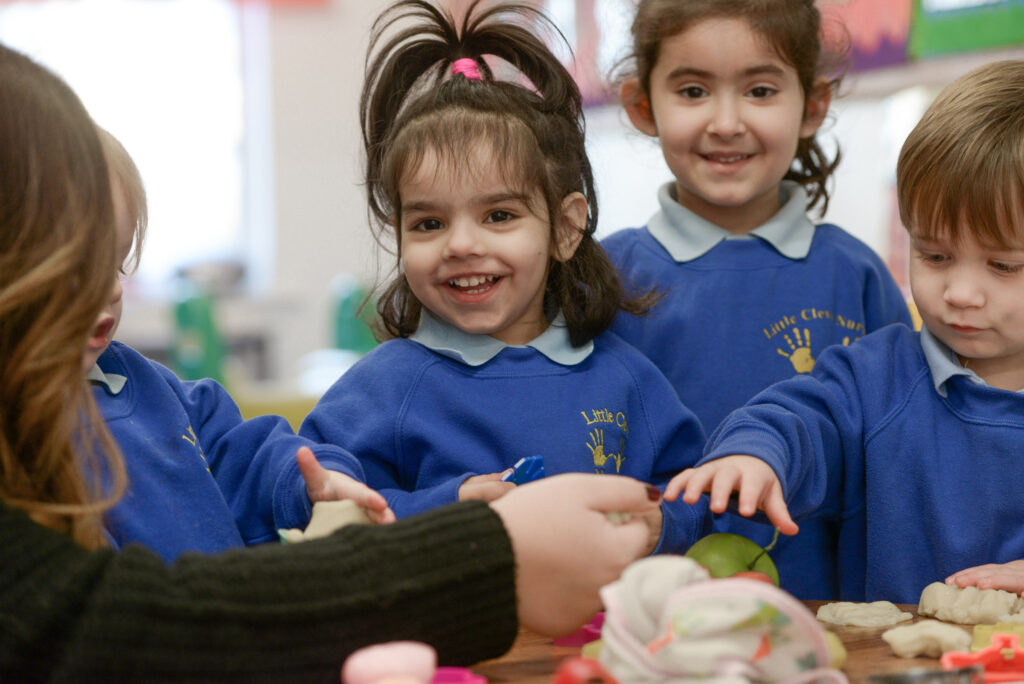
Physical Development
Physical development aims to develop the children’s movement and handling skills. The Preschool setting provides a safe and fun environment for a multitude of indoor activities that help develop hand/ eye coordination and motor skills whilst actively promoting the importance of sharing toys and equipment, from playing with play dough, water and sand, to expressing themselves through chalk, paint, pencils, felt pens and crayons.
Outdoors we have our secure playground where children can play together, whilst developing their spatial awareness and learning about respecting the personal space of others. We also enjoy walks to the nearby park. Toys include scooters, Little Tikes cars and climbing apparatus that are perfect for developing balance, coordination and motor skills. Balls and beanbags for mastering throwing and kicking techniques are also in abundance. Music and movement is also on the agenda with fun activities including exercising to music and exercise rhymes, which help to develop movement control, rhythm and musical ability.
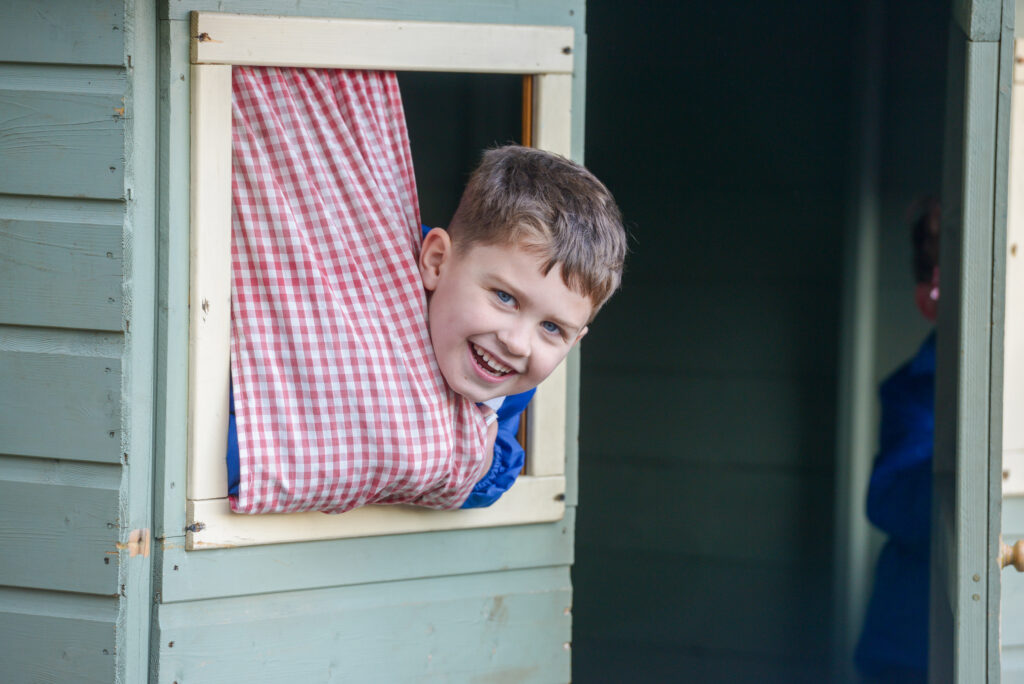
Communication, Language and Literacy
Through stimulating and fun activities, the children develop their reading and writing skills, as well as learning how to communicate effectively. In the Preschool we enjoy storytelling, nursery rhymes, poems, counting games and finger rhymes to encourage listening and interaction in order to develop concentration, attention and participation. Listening to stories and reading books actively invites conversation and helps build the children’s self-confidence and boosts their self esteem. We teach them to listen to other children as well as encourage them to share their own thoughts in order to develop their vocabulary and speaking skills. As well as stories and books, we use all sorts of fun activities to develop reading skills through the Letters and Sounds Scheme. These include finding familiar words, such as their own name, to help them associate particular sounds with letters and words; as well as jigsaws and games that involve matching, such as lotto and identifying sounds in the environment.
To develop the children’s writing skills, we focus on how to hold writing implements correctly to enable easy mark making and later on letter formation. Children express themselves with pencils, wax crayons, chalk, felt pens and various sizes and shapes of paper and write in sand, paint and the air.
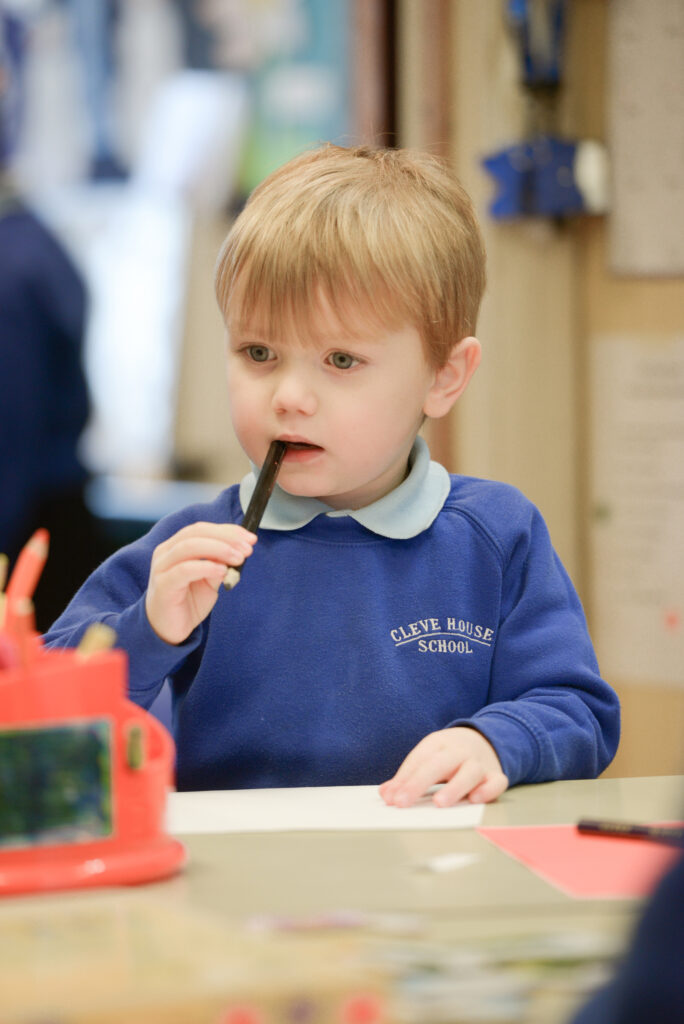
Mathematics
Games and activities play a key role in developing mathematical understanding and problem solving. Through participating in songs, number rhymes, stories and counting games, the children will become familiar with and understand numbers, shapes and measurement. By using everyday objects, we encourage the naturally inquisitive child to explore ordering, matching, sorting and recreating patterns, as well as counting from one to ten in order to broaden their mathematic skills and understanding. Before long the use of mathematical language will develop, along with the ability to add, subtract and perform numerous mathematical tasks.
Expressive Art and Design
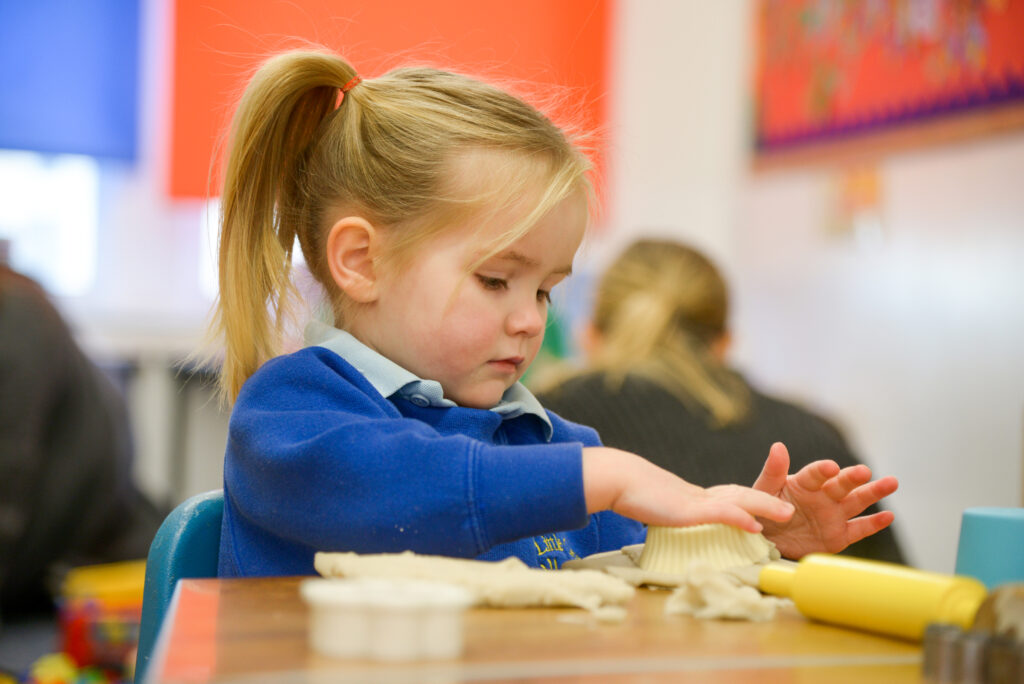
Expressive art and design aims to develop the children’s creative skills and self-expression through exploration, imagination, media and materials. Our fun-packed activities, including art, music, dance, play and stories, will
unleash their creativity and imagination as they discover the amazing world of colour, sound, texture, shape and form around them. To encourage the exploration of self-expression further, we use a variety of materials and techniques such as drawing, painting, sticking, model making and printing. As music is a great way for children to discover the wonders of sound, we actively encourage learning through many forms of music: from listening,
movement and performing, to songs and music making. Our Preschool is all about imaginative play so the children enjoy plenty of opportunities to dress up and engage in role play. The children’s imagination is stimulated and interaction with other children encouraged through using all areas of the Preschool, including the home corner, to
develop play situations such as: super heroes, babies, doctors, aeroplanes or whatever interest comes from their play and experiences.
Understanding the World
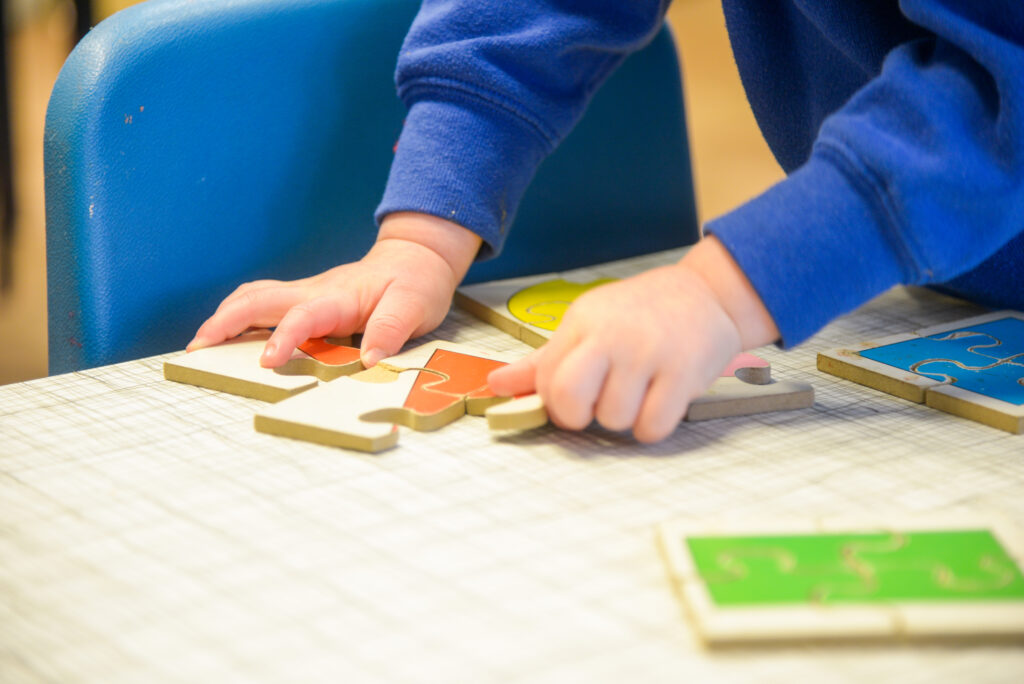
Understanding the world aims to develop the children’s understanding of people, communities, technology and the world itself. Through engaging activities and games, the children will develop a wide understanding of the how, what, why, when and where of things. Maximising on the children’s natural curiosity to question their surroundings and the world beyond, our activities encourage them to explore, discover, understand and share their findings. From experiencing the changing seasons and various weather conditions, to playing with water and sand, the children will enjoy exploring the outside environment. But that’s not all; basic skills such as folding, cutting, joining and building are explored in preparation for the Design Technology National Curriculum. To familiarise the children with the digital age, computers with fun and educational software allow them to experience information technology and discover the important role it plays in today’s world.
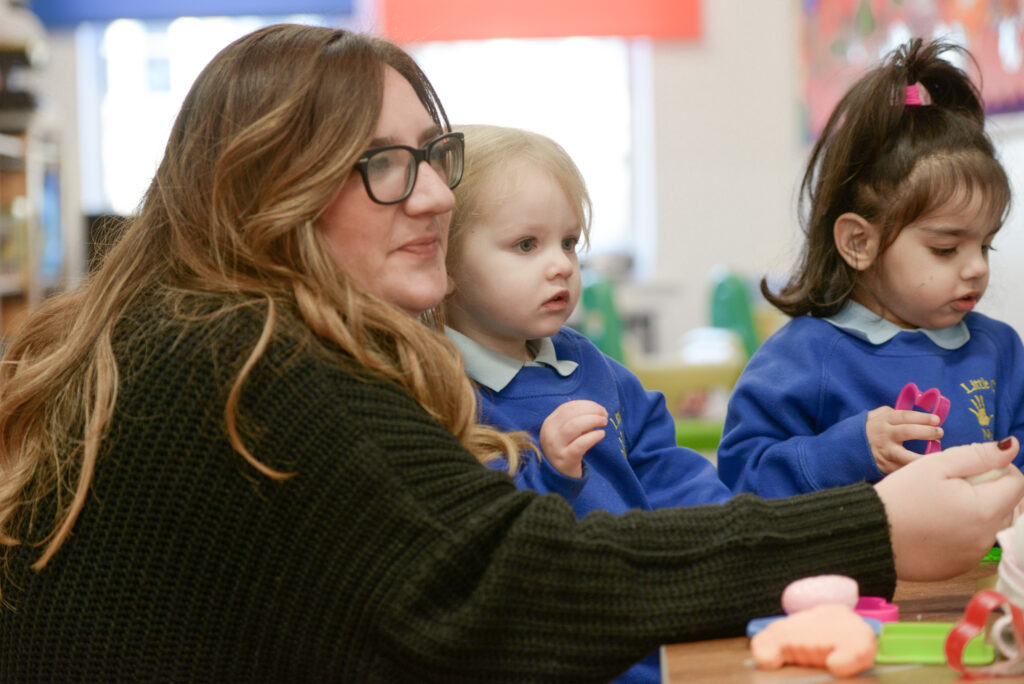
At Cleve House Preschool it is our aim to……
- Base the curriculum on the needs of individual children and their appetite for play.
- Use observations to inform our planning and possible lines of development.
- Use ‘in the moment’ opportunities for planning, teaching and next steps.
- Work in partnership with parents.
- Provide a continuous provision/ environment where children can learn and be interested.
- Provide stimulation, variety, interest, opportunities and to develop concentration through play situations and adult led activities.
- Allow uninterrupted time for the children to explore their environment independently, enabling them to set their own challenges and to make their own decisions.
- Have opportunities for children to work on specific tasks in collaboration with their peers and the adults, who are able to promote and develop current interests as they arise.
- Record children’s interests and development in both individual and class learning diaries.
Children will have…….
- Access to a wide range of materials and opportunities to explore them.
- The opportunity to use language and be exposed to a rich vocabulary.
- The opportunity to make choices.
- Interaction with sensitive adults with consistent boundaries and rules.
- The feeling of being safe, secure and listened to.
- An environment that is familiar to them and their families.
- Opportunities to explore their current interests.
- A well resourced environment both indoors and outdoors.
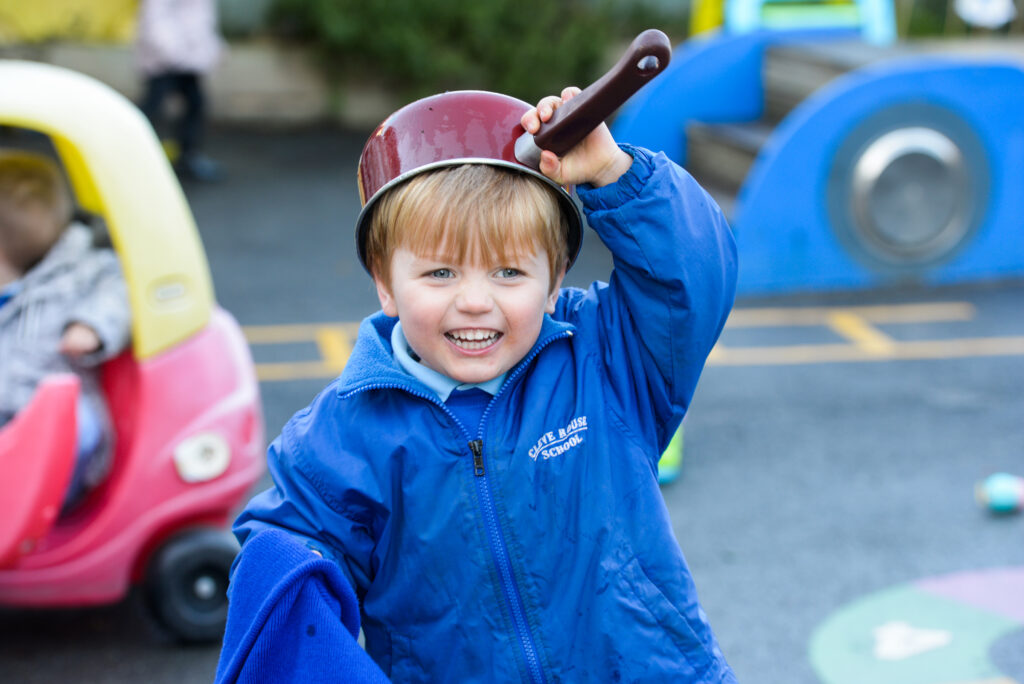
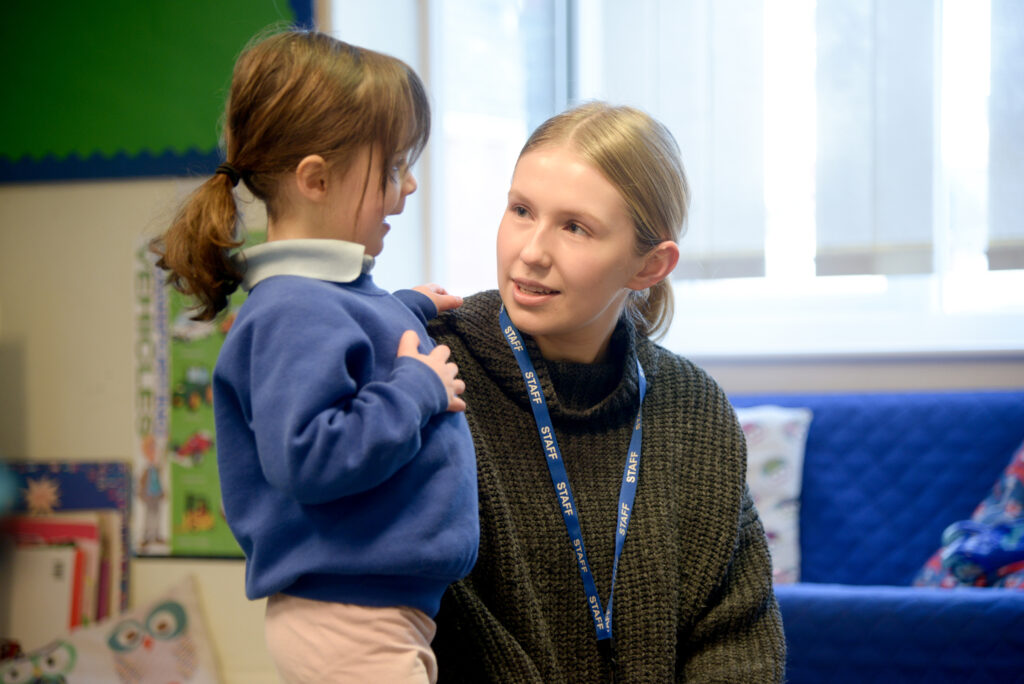
.